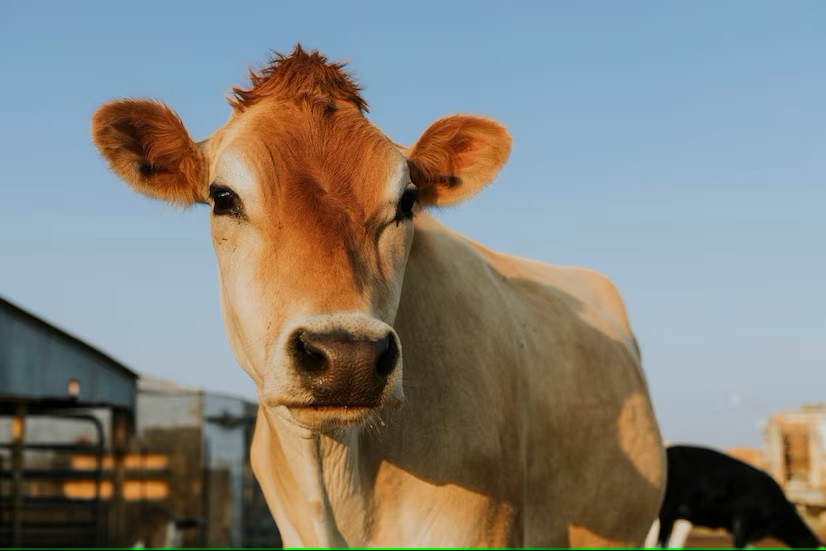Anthrax is a type of zoonotic disease, meaning it can spread from animals to other animals and to humans. Recently, the reappearance of anthrax cases in Indonesia has caused concern, as there have been fatalities due to this disease.
It's important to know how anthrax is transmitted and what symptoms are experienced in order to prevent, recognize the symptoms, and receive appropriate treatment.
What is Antraks disease?
Anthrax is one of the more serious zoonotic diseases. This disease is caused by a gram-positive rod-shaped bacteria called Bacillus anthracis. This bacteria can naturally be found in soil, livestock, and wild animals, which can become sick and die when infected.
Anthrax can infect humans when someone inhales bacterial spores or consumes food or beverages contaminated with them. You can also be infected with anthrax if you have an open wound and have direct contact with sick animals or tools exposed to the bacteria.
Symptoms of Anthrax
Anthrax symptoms typically develop within six days after exposure to the bacteria. However, contamination through spore exposure may take more than six weeks for symptoms to appear.
The symptoms that appear also depend on how you were exposed, including:
Skin symptoms
Skin infection can present with itching, lump-like lesions resembling insect bites. Within 1-2 days, the lump will develop into a sore/ulcer with a black center.
Skin infection due to anthrax is the most common and mild symptom. The wound is also not painful. Skin complaints may also be accompanied by flu-like symptoms such as fever, headache, and swollen lymph nodes.
Gastrointestinal symptoms
These symptoms are caused by infection from consuming contaminated food and beverages. The infection can affect the throat and digestive tract. The symptoms that may occur include:
- Nausea
- Vomiting
- Abdominal pain
- Headache
- Loss of appetite
- Fever
- Diarrhoea with blood
- Sore throat and difficulty swallowing
- Swelling of the neck or abdomen
- Fainting
Respiratory symptoms
Breathing difficulties can occur when you inhale bacterial spores from infected animals. The symptoms can lead to a fatal condition if not treated properly. The symptoms include:
- Flu-like symptoms for several hours or days, such as sore throat, mild fever, fatigue, and muscle pain
- Discomfort in the chest
- Shortness of breath
- Nausea
- Coughing up blood
- Excessive sweating
- Painful swallowing
- Severe fatigue
- High fever
- Difficulty breathing
- Shock
- Meningitis
Anthrax is not as contagious as the flu or chickenpox, so you cannot become infected just by coming into contact with an infected person. Most of the symptoms can be treated with antibiotics and antitoxins injected into the body.
Vaccination may also be given to individuals infected with anthrax to prevent the symptoms from becoming severe.
To avoid anthrax infection, it's best not to eat raw or undercooked meat, wash your hands after touching animals, avoid consuming meat infected with anthrax, and avoid buying souvenirs made from animal skin or fur.
Seek medical attention immediately if you are in an anthrax outbreak area and consumed contaminated meat. If you need medical advice or consultation, you can either visit a doctor or make use of the consultation features that are available in the Ai Care application by downloading the Ai Care application from the App Store or Play Store.
Looking for more information about other diseases? Click here!
- Sean Edbert Lim, MBBS
CDC (2022). What is Anthrax?. Available from: https://www.cdc.gov/anthrax/basics/index.html
Mayo Clinic (2022). Anthrax. Available from: https://www.mayoclinic.org/diseases-conditions/anthrax/symptoms-causes/syc-20356203
Cleveland Clinic (2023). Anthrax. Available from: https://my.clevelandclinic.org/health/diseases/10853-anthrax
Kemkes (2020). Antraks di Gunung Kidul, Begini Cara Penanganannya. Available from: https://www.kemkes.go.id/article/view/20012100001/antraks-di-gunung-kidul-begini-cara-penanganannya.html
Humbanghasundutankab (2022). Wabah Antraks, PPSKI: Perketat Lalu Lintas Hewan Ternak. Available from: https://humbanghasundutankab.go.id/main/index.php/read/news/730











